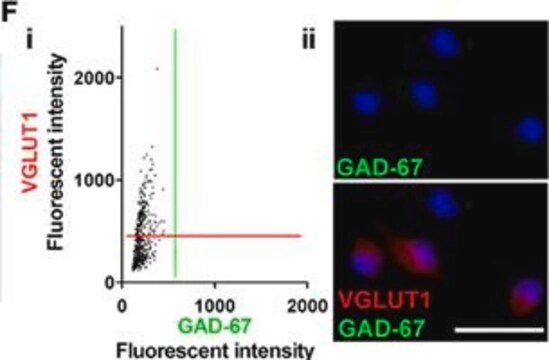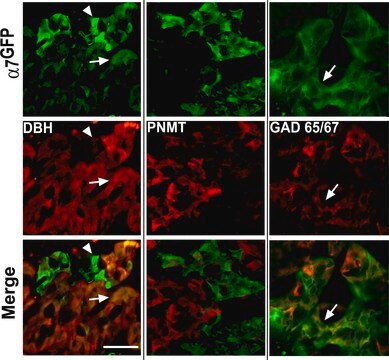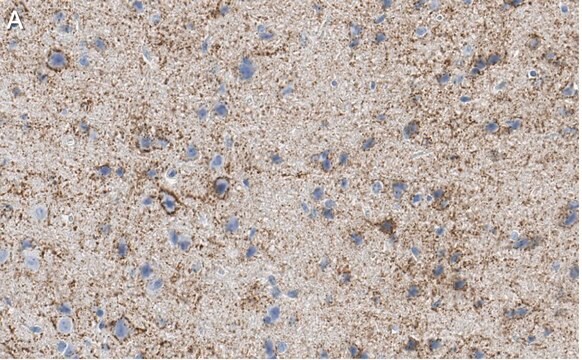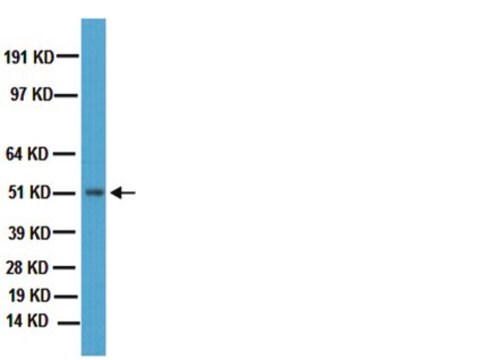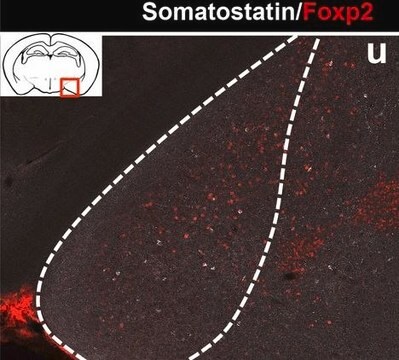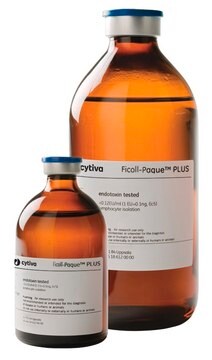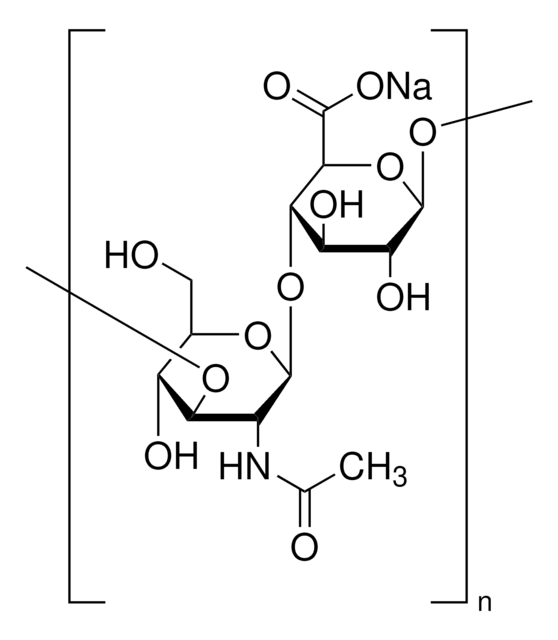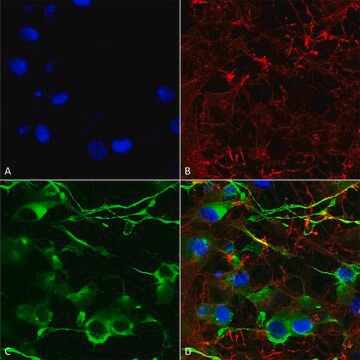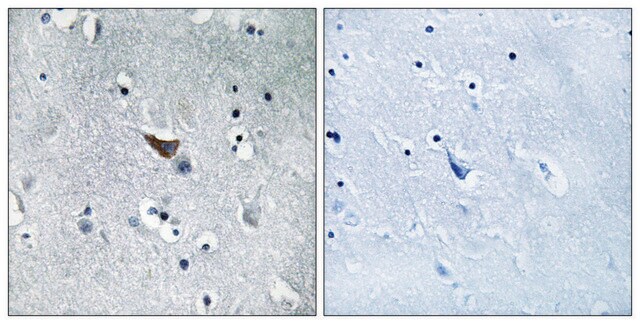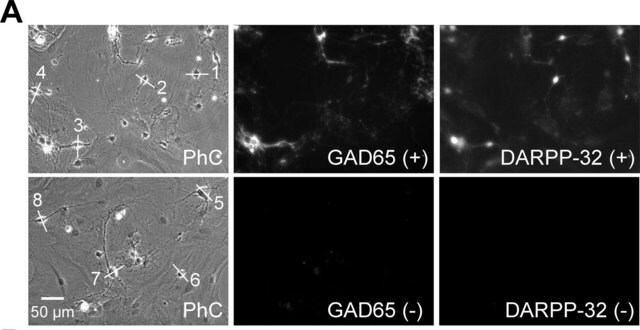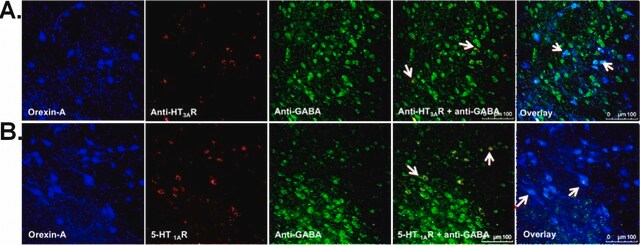G5419
Anti-GAD1/GAD2 Antibody
mouse monoclonal, K-87
Synonym(s):
Anti-GAD 67
About This Item
Recommended Products
Product Name
Monoclonal Anti-Glutamic Acid Decarboxylase 67 (GAD67) antibody produced in mouse, clone K-87, purified antibody
biological source
mouse
Quality Level
conjugate
unconjugated
antibody form
purified antibody
antibody product type
primary antibodies
clone
K-87, monoclonal
mol wt
antigen 67 kDa
species reactivity
rat, mouse, human
concentration
~1 mg/mL
technique(s)
immunohistochemistry (formalin-fixed, paraffin-embedded sections): 1:500-1:20,000 (with antigen-retrieval step)
western blot: 1:500-1:20,000 using mouse brain extract
isotype
IgG1κ
UniProt accession no.
shipped in
dry ice
storage temp.
−70°C
target post-translational modification
unmodified
Gene Information
human ... GAD1(2571)
mouse ... Gad1(14415)
rat ... Gad1(24379)
General description
Specificity
Immunogen
Application
- immunohistofluorescence
- western blotting
- immunohistochemistry.
Biochem/physiol Actions
Physical form
Disclaimer
Not finding the right product?
Try our Product Selector Tool.
Storage Class Code
10 - Combustible liquids
WGK
nwg
Flash Point(F)
Not applicable
Flash Point(C)
Not applicable
Personal Protective Equipment
Choose from one of the most recent versions:
Already Own This Product?
Find documentation for the products that you have recently purchased in the Document Library.
Customers Also Viewed
Our team of scientists has experience in all areas of research including Life Science, Material Science, Chemical Synthesis, Chromatography, Analytical and many others.
Contact Technical Service